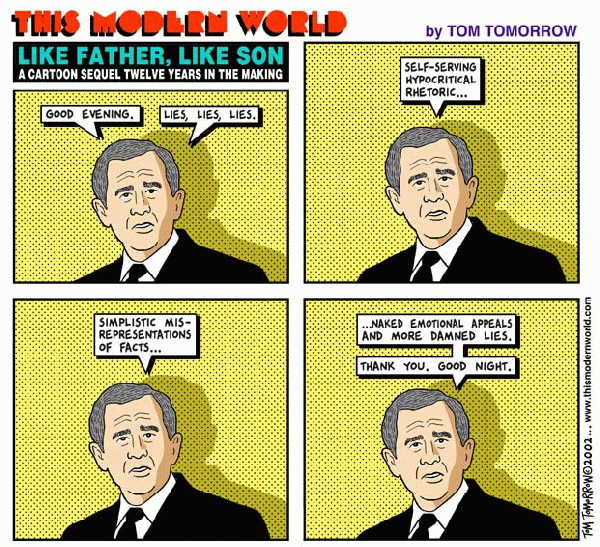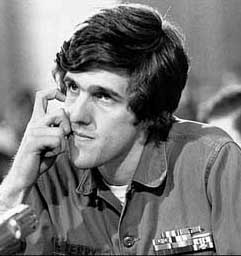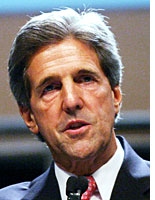In Their Own Words
(Scharzenegger quote pointed out by Ghost in the Machine 2004-09-01.)
Arnold Schwarzenegger, speech to the Republican National Convention, 2004-08-31:
My fellow immigrants, my fellow Americans, how do you know if you are a Republican? Well, I tell you how. If you believe that government should be accountable to the people, not the people to the government, then you are a Republican.
Zell Miller, speech to the Republican National Convention supporting George W. Bush, 2004-09-01 (emphasis added):
In the summer of 1940, I was an 8-year-old boy living in a remote little Appalachian valley. Our country was not yet at war, but even we children knew that there were some crazy man across the ocean who would kill us if they could.
President Roosevelt, in a speech that summer, told America,
All private plans, all private lives, have been in a sense repealed by an overriding public danger.In 1940, Wendell Wilkie was the Republican nominee. And there is no better example of someone repealing their “private plans” than this good man.
He gave Roosevelt the critical support he needed for a peacetime draft, an unpopular idea at the time.
And he made it clear that he would rather lose the election than make national security a partisan campaign issue.
(This passage got loud applause and vocal cheers from the Republican audience.)
Hiding the Truth? President Bush’s Need-to-Know Democracy by Stephen Pizzo:
It’s been said that the first casualty of war is always truth. But with the Bush administration’s war on terrorism, it’s hard to know, because even before 9/11 the administration had begun hermetically sealing formerly public sources of government information.
It began when Vice President Dick Cheney refused to provide details of his energy task force meetings with energy companies, particularly top Enron officials. Then, came President George Bush’s November 2001 executive order allowing the administration or former presidents to order executive branch documents withheld from the public. At the time, the administration said the new restriction on presidential papers was to protect the privacy of former presidents and those they dealt with while in office.
But, the order also shields from public view documents from President Bush’s father’s term in office that could be awkward now. The suspicion was that the executive order was designed to protect several current White House officials who served in the Reagan and Bush 41 administrations from embarrassment –specifically, Secretary of State Colin Powell, Vice President Dick Cheney, White House Chief of Staff Andrew Card, and former Budget Director Mitch Daniels, Jr.
Each official had brushes with controversial policies in earlier administrations — not the least of which was the Iran-Contra scandal during the Reagan administration. The elder Bush, then-Vice President, maintained he was
out of the loop.Documents in the Reagan archives might contradict that version of history.Both Cheney’s refusal to hand over his energy task force documents, and the presidential order shielding past administrations’ archived documents caused uproars among open-government advocates, historians and members of Congress.
. . .
Effectively, keeping secrets means never having to say you’re sorry. It also means never having to admit you made a terrible mistake, or even lied.
White House press flack Ari Fleischer:
They’re reminders to all Americans that they need to, to watch what they say, watch what they do, and this is not a time for remarks like that. It never is!
John Ashcroft, Attorney General of the United States of America, 2001:
To those who scare peace-loving people with phantoms of lost liberties, my message is this: Your tactics only aid terrorists — for they erode our national unity and diminish our resolve.


